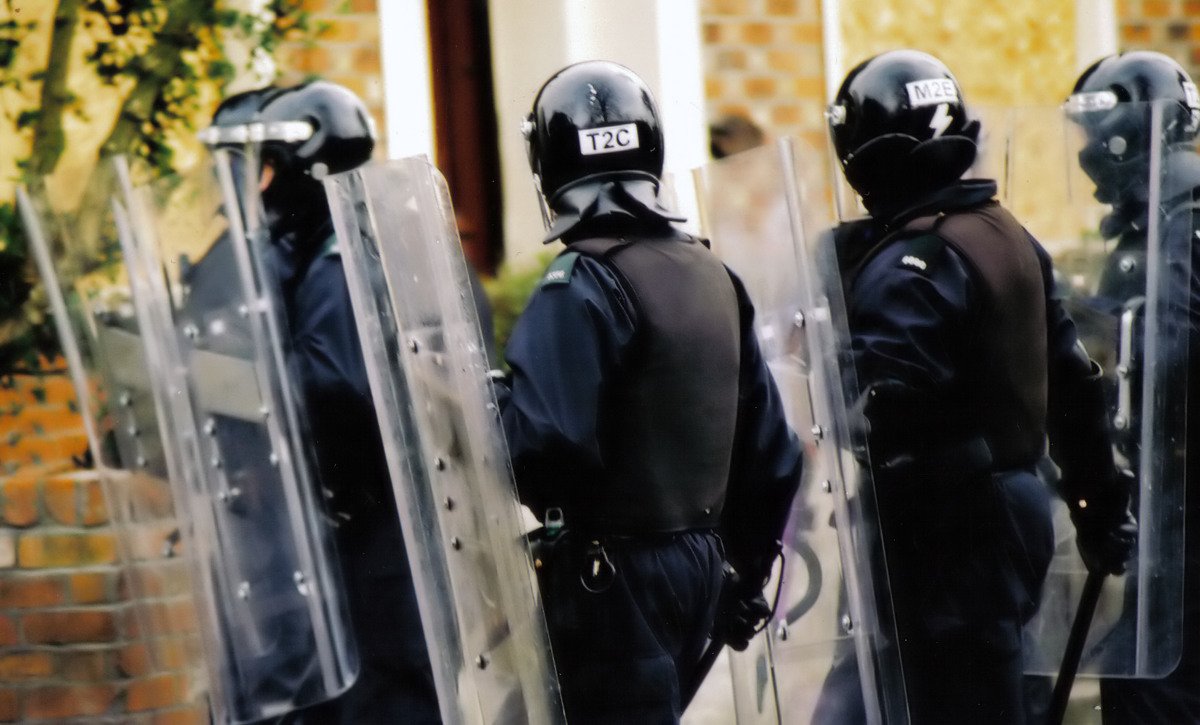The Need for Police
We need cops. I am not one of those who wants to abolish the police. It’s a necessary job. There will always be people who want to do us harm, circumstances where we are vulnerable. It’s a point of view hardly worth arguing for me. To be brief, having a specialized local law enforcement agency keeps people safe. This requires training, money, and brave men and women. We are not all John Wayne, or John Cena, or John Jones; this isn’t the Wild West, the squared circle, or the Octagon. And we don’t all want to own guns, as some libertarians advocate. We, I think, are trying to live in a civilized world. That means not being scared to go outside or to be alone; the same goes for our kids and loved ones. It also means we are not obligated to seek out mob justice - as we see happen in some developing countries when some poor burglar is caught, say. Laws have to be enforced. Otherwise, the bad guys have the power. A police force gets that done. We delegate this responsibility, to enforce laws, we, as a society, recognize as important. This way, we can live in a peaceful world: preserving life, pursuing happiness, and enjoying property.
The Difficulty of Policing
Let me also acknowledge, as has been said a lot recently, that policing is a difficult profession. Ideally, to handle all situations, we want cops to be excellent grapplers (reducing the need for physical violence); well-trained to disarm, deescalate, and detain; and well-armed (to handle danger) while also being mental help experts; law experts; be street smart; excellent communicators and negotiators; and have incredible restraint, courage, and patience. The question, though, is, do we ask too much of our fellow humans we rely on to protect and serve? For me, it’s hard to imagine anyone but the top 1% of humanity fitting such a description. There are such people out there. But the job is too important to have so few who can truly do all that is demanded.
The Problem of Policing
And all these demands can cause problems.
While I’m not a fan of the phrase “Defund the Police,” because it implies we need to reduce policing, or take away their money, I do think there’s an idea therein that makes sense. And that’s the idea of specializing police work a bit more. People with untreated mental illness are much more likely to be killed by police (Source: https://www.treatmentadvocacycenter.org/key-issues/criminalization-of-mental-illness/2976-people-with-untreated-mental-illness-16-times-more-likely-to-be-killed-by-law-enforcement-). While this variable would make any situation potentially more difficult, adding a gun to the situation, an already stressful job, and a lack of specialized training and experience in dealing with the mentally ill, especially when the person in question is non-violent, might not be the best go-to step. Defund has advocated for the use of mental heath professionals in situations where suspects are non-violent. These professionals, for example, can work with police to make the initial contact. A cop can intervene if the situation becomes violent. This also reduces the burden and stress for individual cops.
Then there are the killings, of citizens and of cops, that take place during routine, minor traffic or parking violations. Some of these are the results of bad policing, some of bad luck. There are many examples; I wish to not be divisive here. While many of these interactions may be necessary, some may be automated, if not now then in the future with further technological innovation. Problems with license plates or taillights, for example, can be documented digitally and a ticket can show up in the mail. This general approach of automating and reducing unnecessary interactions, if implemented, will save lives.
We cannot use a hammer every time; everything is not a nail. Reducing some of the career’s purview would allow cops to be more surgical (e.g., to focus on violent crime and process more rape kits). It should relieve stress and danger, and, therefore, reduce police brutality and potential tragedies. It’s a win-win for everyone.
And yet there are other problems that specialization, that precision, will not address.
Police often police themselves, which lead to predictable results. Even when there are Federal probes into civil rights violations, even when wrongdoing is found, departments often revert back to their old ways. Consent decrees are common, but do not reduce the incidences that created the problem in the first place (Source: https://time.com/police-shootings-justice-department-civil-rights-investigations/).
Police across the country are becoming increasingly militarized thanks to federal programs that gift them surplus military equipment. The problem is obvious: We, the public, are not an opposing army; we are citizens seeking to live purposeful, fulfilled lives. Some of us are bad. Some of us are terrorists. And I believe in specialization within law enforcement, in SWAT, for instance. But even SWAT is being routinely used for drug busts, more than what they were originally meant to be used for: a specialized force for specific emergencies (Source: https://www.aclu.org/report/war-comes-home-excessive-militarization-american-police).
Then there’s qualified immunity. Large settlements are paid by the government for the gross negligence of one or two bad cop(s). This one examples pops into my mind. In 2013, the DEA settled a suit for $4.1 million to Daniel Chong after he was left for five days handcuffed and unsupervised in a DEA holding cell; he survived by drinking his own urine (Source: https://www.cnn.com/2013/07/30/justice/california-dea-settlement/index.html). If cops could get personally sued for such wrongdoing, or their pensions would be affected, I think less of this sort of thing would happen. But there is not much of an incentive when you are not held personally responsible financially.
There’s also a police cultural issue. I see it as two-pronged: the blue shield and an us-vs.-them mentality. Abuse is well-known within policing. Crimes get covered up. Here’s just one example, one I’ll never forget. In 2015 in Chicago, Former Police Commander Jon Burge was found guilty of running an “evil squad” that tortured mostly black men in jail, usually to force confessions. His method of choice, electrocuting their testicles; it left no mark. He did this for over a decade. He died in 2018 (Source: https://www.themarshallproject.org/2018/10/30/payback).
While police don’t have a ton of power de jure, as public servants, de facto they do. To be in control of investigating, of generating a narrative, of evidence, of cameras, of equipment; to have even just the authority of being in law enforcement. Imagine a bad cop who wants to target an innocent person using all the tools society has paid for in order to get the bad guys. If his coworkers stay silent, his supervisors are unaware, and he spins a narrative of investigation against the person, then what is there to stop him from, say, harassing and targeting the person, trying to put him or her in jail, despite no realistic expectation of a crime occurring?
Toward a Solution
In my view, we have not yet, as a society solved the problem of policing, not only in terms of what the proper responsibilities entail but also in limiting real-world power enough to eliminate the ability for abuse to occur. I don’t know what the exact answer is. It seems to me we need first to acknowledge the problem. This is such a divisive topic that many are ready to either defend the police at all costs or equally condemn them for doing their job. This one is going to take time to resolve. We are human, after all. It’s part of why these problems occur in the first place: human nature. We are full of biases and character flaws. We are slow to learn, society slow to change. But I am hopeful because we are moving in the right direction. Over the centuries, violent crime has reliably trended downward (Source: https://blogs.berkeley.edu/2010/06/16/a-crime-puzzle-violent-crime-declines-in-america/). We seem to be, over the long term, solving the violence problem, a problem in our genes. That’s hopeful. And if we can agree on the problem of policing, then we are closer to a solution.

